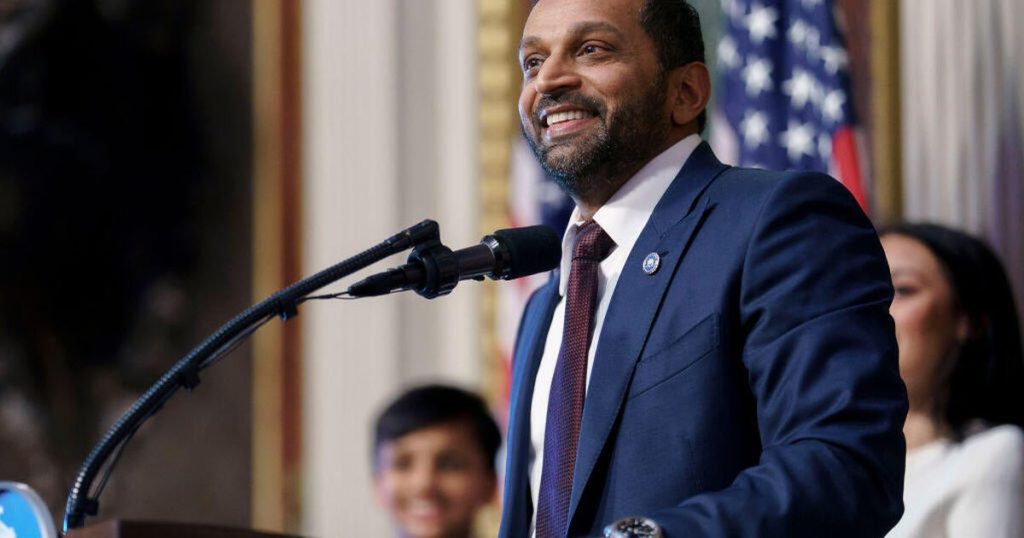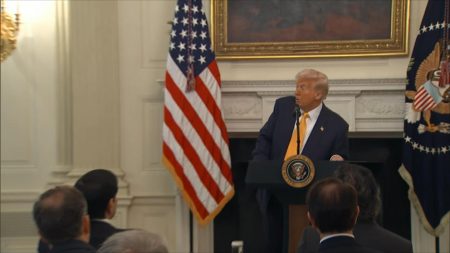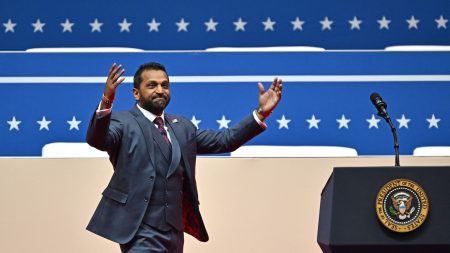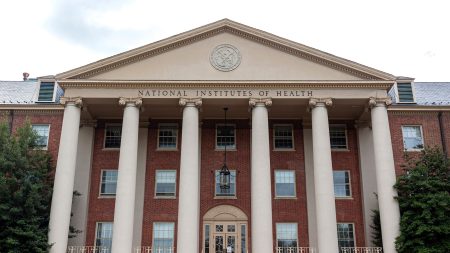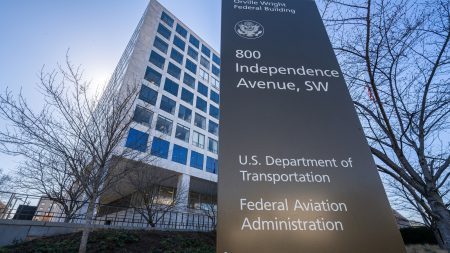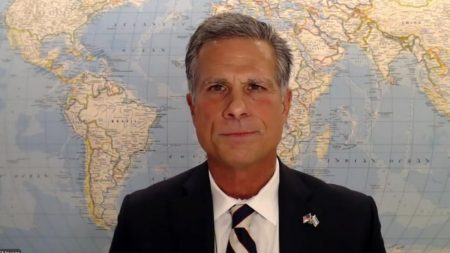Kash Patel: The New FBI Director and Potential Head of ATF
Kash Patel, a staunch ally of former President Donald Trump, has been sworn in as the new director of the FBI, following a contentious Senate confirmation process. The Senate voted 51-49 in favor of his confirmation, with two Republican senators joining all Democrats in opposition. Now, according to two Justice Department sources, Patel is also expected to be named the acting head of the Bureau of Alcohol, Tobacco, Firearms and Explosives (ATF). This dual role would place Patel at the helm of two major agencies within the Department of Justice, marking a significant shift in leadership amid ongoing political tensions.
The Role of the ATF and Patel’s Potential Leadership
The ATF, an agency with over 5,200 employees and a budget of approximately $1.6 billion, plays a critical role in investigating gun crimes and enforcing federal firearms laws. Patel’s potential appointment as its acting director would come at a time when the agency is facing scrutiny from the Trump administration and congressional Republicans. If confirmed, Patel would replace Marvin Richardson, who has been serving as the ATF’s acting director. This move, first reported by ABC News, has sparked concerns among former ATF officials and critics of the Trump administration, who fear that Patel’s leadership could lead to significant changes in the agency’s mission and operations.
Political Backlash and Funding Cuts
Patel’s appointment to lead the ATF comes amid a broader push by the Trump administration and congressional Republicans to scale back the agency’s authority. During his presidential campaign, Trump openly criticized the ATF, referring to former director Steven Dettelbach as a "radical gun grabber" and pledging to remove him on his first day in office. Congressional Republicans have already proposed $188 million in budget cuts for the ATF in the 2025 fiscal year, arguing that the agency overreaches in its enforcement of firearms regulations, particularly regarding pistol braces. These cuts have raised alarms among supporters of the ATF, who argue that reducing its funding would undermine its ability to combat violent crime.
The Warning from Former ATF Director Steven Dettelbach
Steven Dettelbach, who served as ATF director under President Joe Biden, has warned about the potential consequences of weakening the agency. In an interview with CBS News last month, Dettelbach expressed his belief that the ATF would be a target for cuts under the Trump administration. He emphasized the importance of the agency’s mission, stating, "I believe that the mission of this agency, which is fighting violent crime, is wildly nonpartisan and bipartisan." Dettelbach also issued a stark warning, saying, "If the ATF were eliminated, people would be killed." His comments reflect the concern among law enforcement officials that reducing the ATF’s resources would leave communities more vulnerable to gun violence.
Turmoil Within the Justice Department
The Justice Department has faced significant turmoil in recent weeks, as the Trump administration exerts greater control over its agencies. Several federal prosecutors resigned after refusing to drop corruption charges against New York City Mayor Eric Adams, and eight senior FBI officials were asked to step down or face termination. Additionally, the FBI was instructed to submit a list of all current and former employees who worked on the investigation into the January 6 Capitol insurrection. These employees were also required to complete a questionnaire, further fueling concerns about political interference in the Justice Department’s operations.
The Broader Implications of Patel’s Appointment
Kash Patel’s appointment as FBI director and his potential leadership of the ATF signal a major shift in the direction of federal law enforcement under the Trump administration. Patel, a Trump loyalist, is expected to bring a partisan approach to these agencies, which has raised concerns among Democrats and law enforcement professionals. The proposed budget cuts to the ATF and the administration’s criticism of the agency suggest that the White House is intent on limiting the ATF’s ability to enforce firearms regulations. As the Justice Department faces ongoing scrutiny and upheaval, the impact of Patel’s leadership on the FBI and ATF will likely be a key point of contention in the months to come.
Conclusion: A Changing Landscape for Federal Law Enforcement
The appointment of Kash Patel as FBI director and his expected role as acting head of the ATF represents a significant turning point for federal law enforcement. With the ATF facing budget cuts and political criticism, the agency’s ability to combat gun violence and enforce firearms laws may be severely diminished. Meanwhile, the broader turmoil within the Justice Department, including the resignation of federal prosecutors and the departure of senior FBI officials, has raised questions about the independence and effectiveness of these agencies. As the political landscape continues to evolve, the future of the ATF and the FBI under Patel’s leadership remains uncertain, with implications for public safety and the rule of law.
Contributors: Melissa Quinn, Scott MacFarlane, and Jacob Rosen contributed to this report.
About the Author: Jacob Rosen is a reporter covering the Department of Justice. He has previously covered President Trump’s 2024 campaign and worked as an associate producer for "Face the Nation with Margaret Brennan." Rosen has also contributed to several CBS News podcasts, including "The Takeout," "The Debrief," and "Agent of Betrayal: The Double Life of Robert Hanssen."
This summary provides a comprehensive overview of the developing story surrounding Kash Patel’s leadership roles within the FBI and ATF, the political dynamics at play, and the potential implications for federal law enforcement and public safety.





